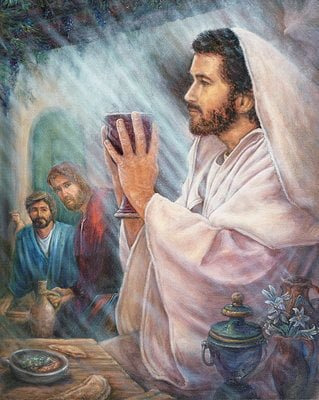Tuesday, February 15

Read Hebrews 8:1-6. Why is Jesus a better Mediator of the covenant?
The Greek term mesites (mediator) derives from mesos (“middle”) and denotes the one who walks or stands in the middle. It was a technical term that referred to a person who fulfilled one or more of the following functions: (1) an arbiter between two or more parties, (2) a negotiator or business broker, (3) a witness in the legal sense of the word, or (4) one who stands as a surety and, thus, guarantees the execution of an agreement.
The English term “mediator” is too narrow a translation for mesites in Hebrews because it focuses only on the first two or three uses of the Greek term. Hebrews, however, emphasizes the fourth function. Jesus is not conceived as “mediator” in the sense that He settles a dispute between the Father and humans, or as a peacemaker who reconciles parties in disaffection, or as a witness who certifies the existence of a contract or its satisfaction. Instead, as Hebrews explains, Jesus is the guarantor (or surety) of the new covenant (Hebrews 7:22). In Hebrews, the term “mediator” is equivalent to “guarantor.” He guarantees that the covenant promises will be fulfilled.
Christ’s death makes the institution of the new covenant possible because it satisfies the claims of the first covenant with Israel (and even with the first humans in Eden), which had been broken (Hebrews 9:15-22). In this sense, Jesus is the guarantor who took upon Himself all the legal obligations of the covenant that had been broken. In another sense, Jesus’ exaltation in heaven guarantees that God’s promises to human beings will be fulfilled (Hebrews 6:19, 20). Jesus guarantees the covenant because He has shown that God’s promises are true. By resurrecting Jesus and seating Him at His right hand, the Father has shown that He will resurrect us and also bring us to Him.
Jesus is a greater Mediator than Moses because He ministers in the heavenly sanctuary and has offered Himself as a perfect sacrifice for us (Hebrews 8:1-5, 10:5-10). Moses’ face reflected the glory of God (Exodus 34:29-35), but Jesus is the glory of God (Hebrews 1:3, John 1:14). Moses spoke with God face to face (Exodus 33:11), but Jesus is God’s Word personified (Hebrews 4:12, 13; John 1:1-3, 14).
Yes, Christ has satisfied the demands of the covenant for obedience. In this light, what is the role of obedience in our life, and why is it still so important?